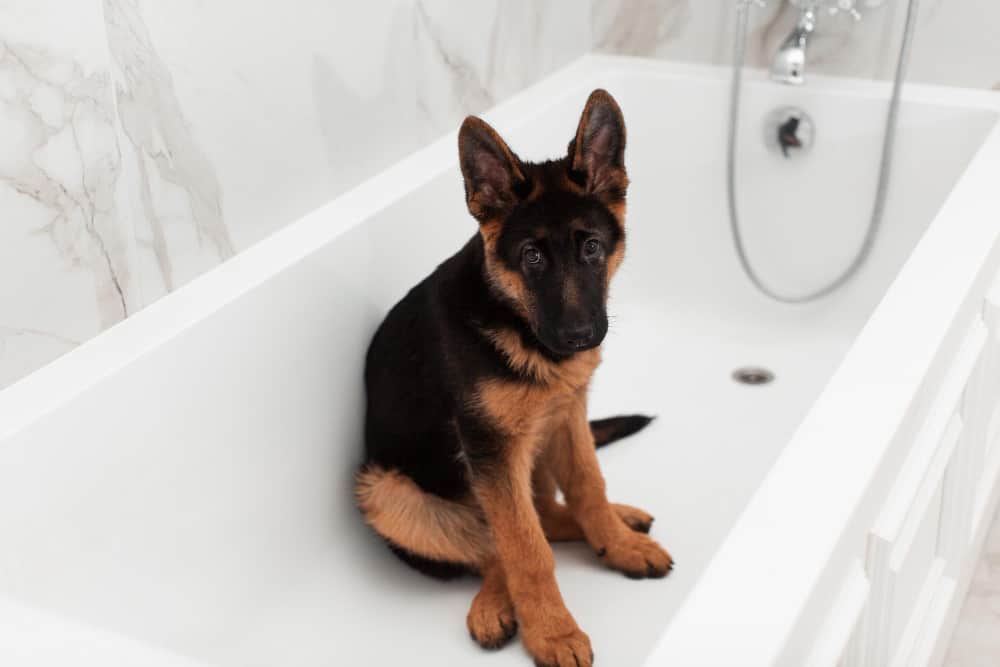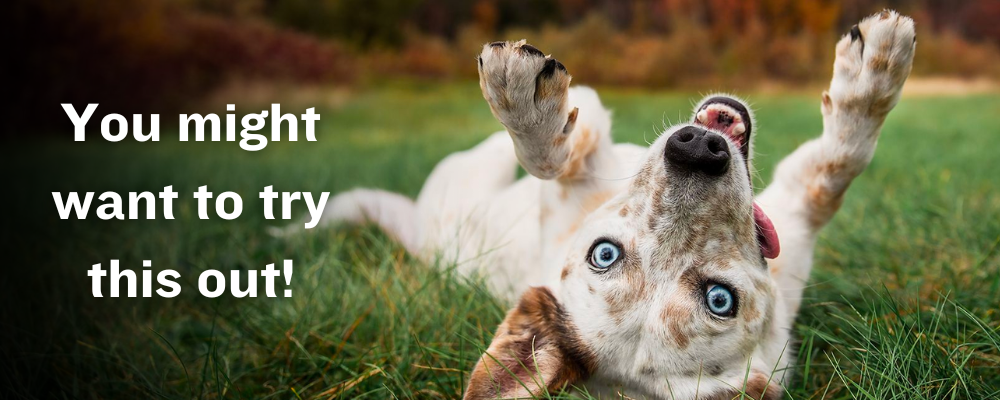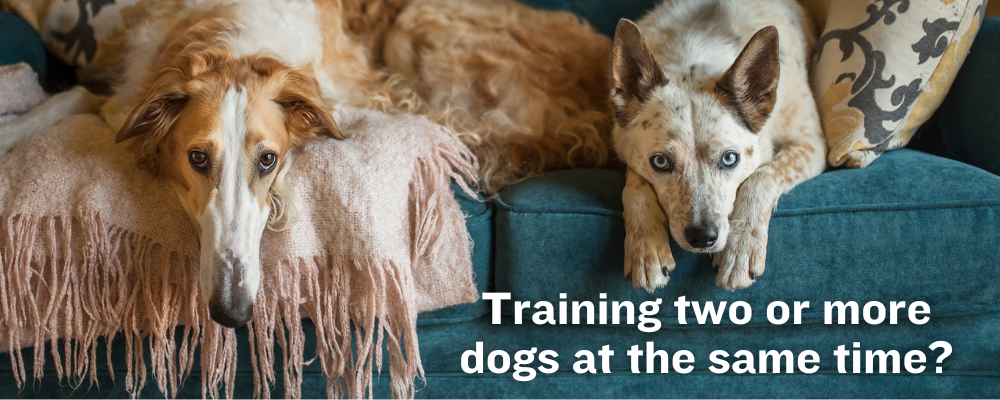There’s a lot to consider when bringing home a new puppy. It will be an exciting but overwhelming experience for first-time owners. What should be on the shopping list? How should I prepare my home? Should I crate my puppy for the first few nights? How to potty train my pup? How do I introduce my new dog to my cat?
In this guide, we will provide answers to all of these questions and more. This is an updated version and we have cut down the word count by using video tutorials to make it easier for you to follow. Our goal is to get you well prepared so you and your new puppy can fit into your home and bond with you as quickly as possible.
Prepare in Advance
In fact, one of the crucial parts of bringing home a new puppy is preparation. You will need to make sure it’s a safe place, before bringing your new best friend home.
1. Puppy-proof your home
If you have kids, you probably know how to ‘baby-proof “your home. Likewise, you should “puppy-proof” your home in a similar manner to check for any safety hazard that could harm a curious puppy who is always testing his limits.
I would recommend you go down on all fours to get from the point of view of your puppy. This will seem extremely silly, but it works.
This will let you spot loose wires, exposed electrical cords, cleaning products, bath products, knife or sharp objects, or anything else your puppy could accidentally swallow.
There are lots of resources on how to puppy-proof your home, and I recommend you check out this post from theoldhouse.com for additional tips.
2. Order puppy supplies
Before bringing your German Shepherd puppy home, be sure to have the following supplies.
- The dog food that the puppy is used to eat at the breeder/rescue.
- Stainless steel food and water bowls
- A crate to place at home and a travel crate suitable for carrying her in your car
- Baby gate(s) to keep your puppy out of certain area (e.g. kitchen or bathroom)
- Identification tags with your GSD puppy’s name, your name, and phone number.
- A collar and a leather or nylon 6-foot leash
- Chew toys to ease teething
- Treats for training
- Basic grooming supplies, e.g. brushes, combs, nail clippers, and puppy-safe shampoo
- Stain/Scent remover for accidents (that will happen)
3. Plan to take a few days off from work
Taking care of a new puppy has a lot of similarities with that for an infant. It needs a lot of love, patience and even sleepless nights.
Most people prefer to bring their puppy home on Friday so they can spend the whole weekend with the new pup.
Or you may need to plan ahead and take a couple of days off (at least one full day) when you first bring your puppy home. In fact, work from home for a few days if you can.
Being there as much as possible in the beginning will help you bond with your lovely pup. You’ll be grateful for the precious time to help your puppy settle in the new environment.
4. Line up with professionals
There will be a lot of things to do in the first couple of weeks after your new furry friend comes home. Don’t get too overwhelmed and ask for help if you need it. You can’t do it all yourself.
That said, you will need several professional services such as a vet, a trainer, and dog sitting to make a good start.
Simply ask your neighbor, friends, or your breeder for a referral. Here’s what to look for:
A veterinarian – It’s important that the vet has good knowledge of common health problems among German Shepherds. Ideally, the vet should be near where you live. Check the pricing and find out what pet insurance does she accept.
A trainer – Again, German Shepherds were bred as working dogs and they will constantly need physical and mental challenges. Training your GSD is essential. A trainer that has experience in training GSD will be ideal.
Pet sitting/walking service – In general, German Shepherds cannot be let alone for too long during the day. Otherwise, the excessive energy and boredom may turn into destructive behavior, which may include dismantling your furniture, eating up your wall or door, to name a few. Have someone walk or take care of your GDS during the day if necessary.
A boarding kennel – There will be times that you need to be away for days. A reputable boarding kennel will come in handy and give you peace of mind.
The Big Day: Bringing Your New German Shepherd Puppy Home
Remember, a puppy is a baby. You shouldn’t treat a German Shepherd puppy as young as 8 to 12 weeks as an adult dog. Treat him the same way you would an infant, with patience, lots of love, and a gentle touch.
McCann Dog Training has made a very informative video for people bringing their new puppy home for the first time. I love the way they are actually showing their new dog for that matter.
From setting up the puppy supplies, tips on the first car ride, to introducing your pup to your home, her crate, her toy, her food and other animals in the house, this video has got you covered.
Check it out for the best benefit of your puppy. Bookmark this page or save the video to your playlist and do watch it over and over again. I learn something new every time seeing it:
The first ride home: making it safe and secure
If you’re a first-time dog owner, you often forget that the dog also needs to be secured when driving in a car.
The most important thing to have with you when you go pick up your German Shepherd is a carrying crate in which to bring him home.
This ride will probably be the very first ride for your pup.
And puppies tend to be known for having a sensitive stomach – and a moving car might make them vomit. (Tips: A towel may come in handy.)
And trust me, it’s a lot better if they’re in a crate rather than on your lap when that happens.
Another reason, for the German Shepherd puppy to be in their crate is that a puppy tends to be quite nervous and squirmy during their first car ride. They are in a strange place with a stranger – who wouldn’t be a bit nervous?
Accidents could occur if puppies crawl under the brake pedal, knock the gearshift, and simply take the driver’s eyes off the road.
The ride home is not necessarily a bonding moment, the only thing that matters is that everybody gets home safe.
The first night
The first night home with your German Shepherd puppy can be challenging for both of you. It’s the first time your puppy is going to sleep without his mother or his brothers and sisters. She may be scared, a bit uncomfortable, and unsure.
Your German Shepherd puppy may whine and cry during the night, it’s your puppy trying to call out for his pack to find him. It’s natural. And she will get used to it. You just need to be there to comfort her.
You should let your German Shepherd puppy sleep in your bedroom. The more time your puppy is near you, the more it will adjust to you and establish you as its new pack leader.
Set Yourself Up for Success: Be the Pack Leader
Every German Shepherd puppy knows that its survival is dependent on the pack leader’s skill and consistency. In the house, the owner is the pack leader. And if you’re a first-time dog-owner, then you need to know a few things.
Right from the start, you need to show your puppy that you are a skilled and reliable pack leader. If you succeed, your pup will devote entirely to you and will do everything to please you.
But the puppy will put you to the test, again and again until it feels safe and secure.
You need to set the rules and boundaries – on what your puppy is allowed to do and what is not allowed. The keyword is consistency.
After all, your pup is still a baby, it takes time and it takes practice. Some dogs learn faster than others. Be patient and you will soon be rewarded with a dog that listens to your commands.
How to Potty Train Your Puppy?
Potty training should start right after a puppy comes home. The early she learns, the less accident will happen in the house. A puppy will usually need at least 1-2 months to be fully potty trained. Some may even take longer.
According to Monkoodog, the key to potty training lies in three pillars: consistency, patience and positive reinforcement. Keep that in mind.
Here’s a short video that sets you up for successful potty training. I have summarized the 5 key steps below for your quick reference:
Five steps to potty train your puppy:
- Fix their feeding schedule
- Take them out – after a meal, first thing in the morning, before bedtime, and once every 30 minutes to 1 hour in the first month.
- Take them to the same spot every time
- Stay with them – stand still in the spot and don’t confuse your puppy that its playtime.
- Reward them each time they poop outside
Final Thoughts
Your new pup has just left her mother and the company of her littermates to an entirely unfamiliar environment – your home. Your role as the new owner is so important to make her transition less uncomfortable, with lots of love and patience.
Hopefully, this article has provided you with the essential things you can do to make it as smooth as possible – to help your pup adjust to his new life with you and your family. Good luck and all the best!
Further questions
How often should I take my puppy out for a potty break?
For the first 1-2 months (8-12 weeks old), take your puppy out after a meal, first thing in the morning, before bedtime, and once every 30 minutes when she is not sleeping.
How many hours does a puppy sleep per day?
A puppy at the age of 8-12 months will sleep for 15-18 hours a day, broken into intervals.
How many times should I feed my puppy a day?
Since your puppy only has a small stomach, it is advised that you should feed her 3 times a day.
How long can I leave my puppy in the crate?
Your puppy should sleep and eat in her crate as part of crate training. You may need to give her a potty break every 2-3 hours during the night. It is advised that you should not leave your puppy in the crate without anyone around for more than 2 hours.
More posts on German Shepherd Puppies

Recommended post
German Shepherd Puppy – The Ultimate New Owner’s Manual
Health and care
- German Shepherd Puppies: Everything You Need to Know
- Bringing Your German Shepherd Puppy Home for the First Time
- How Much Does A Purebred German Shepherd Puppy Cost?
- $500 German Shepherd Puppy For Sale: Does it Make Sense?
- German Shepherd Puppy Crying: Owner’s Guide
- How to Stop GSD Puppies From Biting: 7 Owners-Proven Tips That Work
- When Will My German Shepherd Puppy’s Ears Fully Stand Up?
- German Shepherd Puppy Sleeping Guide: Everything You Need To Know
Training, socialization, and behavior
- 10 Best Training Tips for German Shepherd Puppy
- German Shepherd Puppy Socialization: A Beginner’s Guide
- How To Tell If a German Shepherd Puppy Is Aggressive
Feeding



